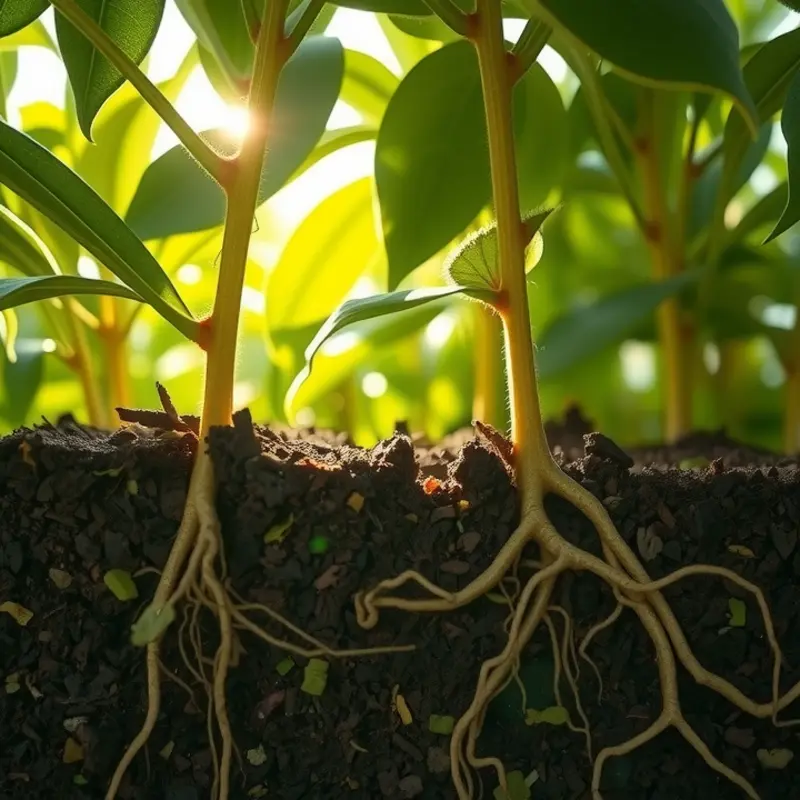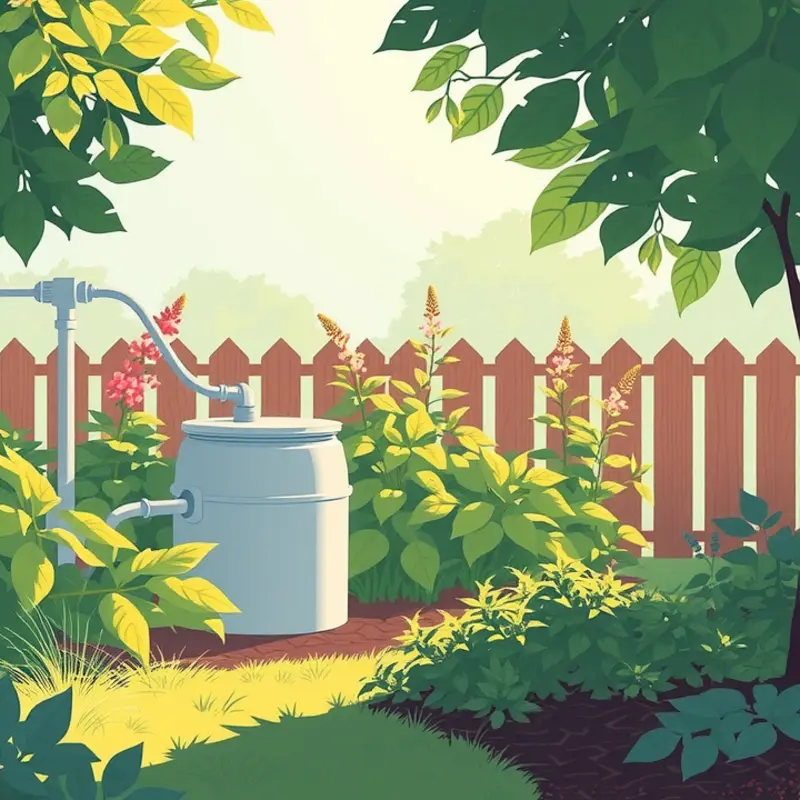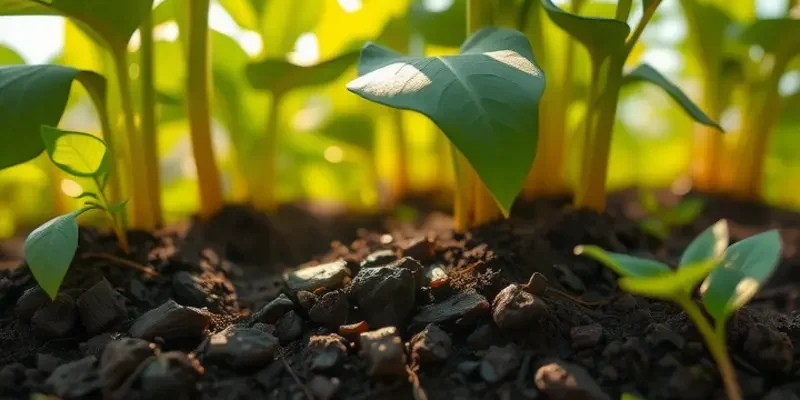Gardening is not only a fulfilling hobby; it’s an impactful way to promote sustainable living. By adopting eco-friendly gardening practices, you can reduce your carbon footprint, enhance biodiversity, and enjoy fresh produce right from your backyard. This journey cultivates a connection with nature, allowing you to contribute positively to the environment. Discover practical tips that make it easy to grow your own food sustainably.
Soil Health: The Heart of Eco-Friendly Gardening

To cultivate a thriving and sustainable garden, one must start with the foundation: soil health. The soil is not merely a substrate but a living entity that supports a myriad of organisms, contributing to a robust garden ecosystem. Understanding and nurturing this complex network is critical to promoting plant growth naturally.
A fundamental method to enrich soil organically is through composting. Composting involves recycling organic matter, like kitchen scraps and yard waste, into a nutrient-rich additive. This compost supplies essential nutrients to plants and enhances the soil structure, improving its ability to retain moisture and support root development. Ensure your compost pile remains balanced between green materials, such as fruit peels, and brown materials, like dried leaves, to optimize decomposition.
Moreover, promoting biodiversity within the soil is key to maintaining its health. Introduce earthworms and beneficial insects that aerate the soil and decompose organic material faster. Encouraging a diverse range of microorganisms, such as bacteria and fungi, helps facilitate nutrient cycling and boosts soil fertility. These microorganisms work synergistically with plants, aiding in nutrient absorption and improving resilience against diseases.
Mulching is another strategy to enhance soil health and minimize the need for synthetic inputs. By covering the soil with organic materials like straw, wood chips, or shredded leaves, you create a protective barrier that regulates temperature, conserves moisture, and suppresses weed growth. Over time, as the mulch breaks down, it adds organic matter to the soil, further enriching its composition.
Avoiding synthetic fertilizers and pesticides is integral to fostering a healthy garden and environment. These chemicals can disrupt the delicate balance of the soil ecosystem and harm beneficial organisms. Instead, rely on organic alternatives, such as compost tea or vermicompost, which provide nutrients naturally while promoting beneficial microbial activity.
For a deeper dive into sustainable recipes that align with eco-friendly gardening, consider exploring the Mediterranean Chickpea Salad. This dish showcases the bounty of a garden where healthy soil contributes to nutrient-dense produce.
By following these eco-friendly practices, gardeners nurture the soil, cultivating an environment that supports vibrant plant life and responsible eating. Through composting, mulching, and fostering biodiversity, you ensure your garden thrives sustainably—reflecting the rich, interconnected tapestry of nature itself.
Water Wisely: Sustainable Irrigation Techniques

Water is the essence of a thriving garden, but managing this precious resource wisely is paramount in sustainable gardening. Several irrigation techniques can significantly reduce water waste without compromising the health of your garden.
Rainwater Harvesting Systems
Harvesting rainwater is one of the most effective methods to manage water use sustainably. Installing a rain barrel system can capture runoff from roofs, storing it for future garden use. This approach not only conserves potable water but also reduces erosion and runoff pollution. Setting up multiple barrels linked together increases capacity and provides a reliable supply for dry spells.
Drip Irrigation
The efficiency of drip irrigation cannot be overstressed. This technique delivers water directly to the plant root zones, minimizing evaporation and runoff. It allows for precise control, ensuring plants receive the exact amount of water needed without wastage. Systems can be customized with timers and sensors, adapting to weather conditions and seasonal changes, vastly enhancing water conservation.
Native Plant Selection
Choosing the right plants is crucial in reducing irrigation needs. Native species, adapted to local climates and conditions, generally require less water than exotic varieties. They are naturally resilient and often have deeper root systems that enhance water retention. Integrating these plants into your garden not only conserves water but also supports local biodiversity.
Benefits of Mulching
Mulch is an unsung hero in water conservation. By covering the soil with organic material like straw, wood chips, or compost, mulch helps retain soil moisture, suppress weeds, and prevent erosion. It acts as an insulator, maintaining a consistent soil temperature and reducing evaporation rates, thus cutting down on watering frequency. Regularly replenishing mulch levels ensures consistent protection and nourishment for your plants.
Proper Timing
The timing of irrigation plays a critical role in optimizing water use. Watering early in the morning is ideal as it minimizes evaporation and allows foliage to dry before evening, reducing the risk of disease. Evening watering can also be effective to prevent daytime heat evaporation, but ensure minimal water is left on leaves overnight. Understanding weather patterns and soil moisture levels can further refine your watering schedule.
By employing these sustainable irrigation techniques, you not only care for your garden effectively but also honor the environment. Each drop saved is a step towards a more conscientious, eco-friendly gardening practice.
Final words
Adopting eco-friendly gardening practices not only contributes to your health but also enhances the planet’s future. By focusing on natural soil enrichment, sustainable watering, and biodiversity, every small action cultivates a greener garden that aligns with your values. Every time you choose to plant ethically, you create a ripple effect encouraging sustainable living, healthier food choices, and a connection with nature that brings joy and fulfillment. Together, let’s grow green and make a difference one garden at a time.








